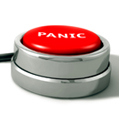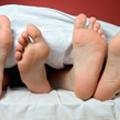
Treating your Depression
Are you suffering with depression, (or are you visiting for a friend or loved one?)
Do you find yourself feeling low and miserable most of the time, are you anxious or worried, easily irritated or upset, prone to anger outbursts? Are you noticing that your thoughts are more negative than they used to be? Are you lacking enthusiasm or energy for the things you need to do or want to do?
Depression affects sleep, eating, drinking, smoking and socialising
Perhaps you’re finding it hard to work out why you feel this way and you might feel guilty because you should be grateful for your life and have no particular reason for feeling down…you just do. That’s depression.
Changes to eating or sleeping patterns and unwanted thoughts are just some of the possible symptoms of a period of depression. Personal relationships may be affected by fewer demonstrations of affection or a lower sex drive. While friendships are altered by a lack of interest in socialising. Hobbies shelved when they no longer feel rewarding, or you just can’t be bothered.
Reactive Depression arises following a major or sudden event in your life, perhaps a death, redundancy, a child’s birth, divorce, moving home, an accident or medical problem. It may be short-lived, perhaps a matter of weeks. Or it may linger for many months, sometimes many years.
Cyclical Depression is where these low moods and behavioural changes happen more than once in your lifetime, not necessarily regularly or close together, sometimes there can be many years between them. With each subsequent bout of depression, the likelihood of further cycles increases
People with depression often feel very lonely, no matter how many people they have in their lives, a sense of others not understanding what they’re feeling or not being able to admit to these thoughts and feelings even to those closest leaves them even more isolated.
The World Health Organisation estimates the rate of depression as 5% at any one time, globally. Whilst more women than men are treated for depression, it could be argued that men are less likely to seek treatment until severely depressed.
The Symptoms of Depression
Some of the more common symptoms are…
- Feeling unhappy most of the time
- Memory lapses
- Loss of pleasure or interest in activities that used to bring pleasure
- Significant weight loss or weight gain – a disturbance of appetite or eating patterns
- Lack of sex drive
- Sleeping problems
- Insomnia, being unable to go to sleep
- An increased need for sleep
- Waking often during the night
- Early waking and being unable to go back to sleep
- Feeling physically tired much of the time, and having less energy
- Feeling agitated, unable to settle, for no apparent reason
- Unable to concentrate
- Increased negative or bad thoughts
- Difficulty in making decisions
- Feeling worthless, ashamed or guilty
- Reduced interest in appearance
- Thoughts of death or suicide
While most people will experience some of these symptoms at some time, several of these at one time can indicate depression, where no physical reason has been found
So, where is your depression coming from?
Not necessarily caused by any big events in your life, but more likely by a build up of emotion over a period of time. Leading busy modern lives, we learn at an early age to push away thoughts and emotions which are uncomfortable or unpleasant, to push them down, ignore them and move on; eventually they just get too heavy…and that’s where we come in.
Begin your escape from depression today
Call/text/message or email today to book your free screening session at Lutterworth Health, where Sue Rayner will discuss the problems you’re having and explain the therapies and training courses which might best suit your needs and she’ll be happy to answer any questions.
We offer complete confidentiality and a sympathetic, professional service from a private office in Lutterworth.
I’ve lost 10lbs in the last 4 weeks and I’ve had no problems, I’ve listened to the CD once a day. The Relaxed Eating Programme is very easy to follow; I’ve had no cravings, and I feel great. I now naturally make the right food choices that are good for me without giving it any thought, and I manage my food portions, listening to my body and know when I have had enough to eat and do not feel I have to finish what is on the plate, just because its there
I came to Sue with a best man speech to perform and a debilitating fear of public speaking, I left with a new found confidence and outlook on life. Sue was welcoming and reassuring from the start, making it enjoyable for me to attend sessions. She not only taught me the strategies needed to overcome my fear, but lessons for all aspects of my life as well. I couldn’t recommend Sue highly enough.
Hi Sue I got hypnotised from you over two years ago for stop smoking and have not smoked since.
Sue, thank you very much for your help. I feel so much calmer and happier in myself. Therapy really helped with my issues and restored my self esteem. I feel so much more positive about the future and feel much stronger in myself. 29/10/19
Just to let you know I went to my dental appointment this morning and had to have 4 injections in my mouth, at first I was slightly worried because I didn’t have time to imagine my ‘safe place’, but by the time he put the next needle in I was completely fine and calm. It definitely was not as traumatic and painful as I used to believe it was. I’m just emailing to say how grateful and appreciative I am, it really has helped me so much!
I certainly feel the sessions have been of great benefit and I am feeling more able to cope with the IBS. I will certainly recommend you to many others
I've lost 23.5lb since starting! Now weight 8st 9lb
Sue has really helped my 9 year old son Archie, he was struggling to fall asleep at night on his own and never slept through the night without waking up. We only saw her for three sessions and it that time Archie is so much better, he falls asleep on his own now and sleeps through the night a lot more than he used to. Thanks so much Sue we are so much more relaxed as a family and sleep time has become a pleasure rather than a chore. 4/11/19
Sue, feeling great as I have now lost a total of 10lbs
I feel more relaxed, calm, more at ease, you gave me that push. I had to take in my favourite pair of trousers by a couple of inches. I've stopped picking and am thinking about food differently.
Thank you - 5 months on Hi Sue! Long time no speak- I hope you are well! Just wanted to say thank you for everything you’ve done- I’m at my happiest I’ve been in years / comfortable in myself and I’m so grateful for everything! Work is going great now, taking on my responsibilities- and I’m loving it. But yes just thought I’d send you a message, everyone has said what a change they’ve seen in me and I think of you every time :-) so thank you!
Reporter Hayley O’Keeffe writes about how hypnosis saved her from a lifetime of catching the bus.
I failed my driving test six times, there I said it.
Aged 28 this was not a good thing for me, learning to drive was something I felt I should have done a lot, lot sooner, but as circumstances dictated it just never quite happened. I’ve had plenty of lessons mind you, and whenever I had any spare money would spend it on intensive courses to try and get myself that illusive pink card. But to no avail, when it came down to actually doing the test I was just so nervous. I’ve had tests where the examiner has grabbed the steering wheel, where I’ve travelled in second gear down Bedford’s London Road, and where I’ve (almost) gone the wrong way around a roundabout. If I’ve ever cut you up I’m very sorry, I was just nervous! I’ve had some great tuition too, from the ever patient Gerard Doyle of Drive Johnsons, he has had to put up with a lot I can tell you. Part of it must be to do with my age, the 17-year-olds just hop in and get going, but I think it was predominantly my mindset. I’ve always been the passenger in the car, and have never really been interested in motoring, super cars and especially not Top Gear! Being behind the wheel seemed like an alien world and was more than a little scary. So that’s where Sue Wilson came in.
Sue works at Bedford Health in St Cuthbert’s Street and is a hypnotherapy practitioner, what's more she offers a special pre-driving test session to help candidates get over their nerves and achieve focus. I booked my seventh driving test, and after much deliberation a session with Sue, would this help me pass my test once and for all? The fateful day arrived and I headed to Bedford Health for the hour long session.
Part of me thought that this would be just the ticket, another hoped that I wouldn’t come out of the treatment room quacking like a duck! But hypnotherapy is nothing like the myths. In a consultation Sue asked me just how anxious I felt about the test, what I was most concerned about and what I wanted to feel like when I was doing the test. And after the hour, which was very relaxing indeed, I came out feeling focused and ready for the test, in a way I have never felt before. And do you know what? Later that afternoon, when the examiner turned to me and said you’ve passed I was so excited, because hypnotherapy, and a little perseverance really does work! To find out more visit www.bedfordhealth.co.uk
By Hayley O’Keeffe
hayley.okeeffe@jpress.co.uk @misshokTC
I have now lost 1.5 stone, which I am truly delighted with! Thank you for all your help
I just wanted to drop you a line to say thank you for helping me stop smoking. It was my one month 'anniversary' on friday and since our session I have not looked back. It's funny - sometimes I forget I ever even smoked at all! Thanks again!
Hi sue thank you again for my treatment it’s been nearly two weeks now. I am settling into being a non smoker really well. I wonder why I ever smoked in the first place it just seems so pointless. I have been filling my time up easily planning new ideas for my business. I feel like I spend more quality time with my son as I’m not constantly thinking about when I can sneak out for a fag! I have been to the gym much more as I know my drive there and back won’t involve a fag stop! I feel fitter, healthier and better already. Every now and then I think about smoking but I use the tools you gave me and the thought disappears within seconds. Thank you again for helping me become a non smoker.
I'm very impressed ... I haven't given in! I feel better in myself and for the baby ... I would recommend it to other mothers who smoke.
Hi Sue, I'm 12st 3 and still dropping! I have now lost 3 stone which is kind of unbelievable! Thank you so much

Thanks Sue ... The Relaxed Childbirth Programme helped me stay calm and enjoy the birth, which I really did, and I have been very happy and have coped very well upon returning home. Everyone commented on how well I looked and I was out and about the next day doing my shopping!
Hi Sue. You asked me to get in touch after a month. Well it's four weeks today and I haven't smoked at all. It's been a hard month as I've not been sleeping well, up at ridiculous times and a couple of personal things that have been very trying. However, I really didn't want a cigarette at all. It did cross my mind a few early morning's, but the thought didn't linger. Had I have tried to do this myself I would definitely have given in. I have really surprised myself and my family. THANK YOU SO MUCH. You should be hearing from my hairdresser XXX at some point, probably after the festive season. My daughter XXX may well be in touch at some point, I am keeping out of it and letting her decide for herself. Thanks again, regards Pat 13/11/19











